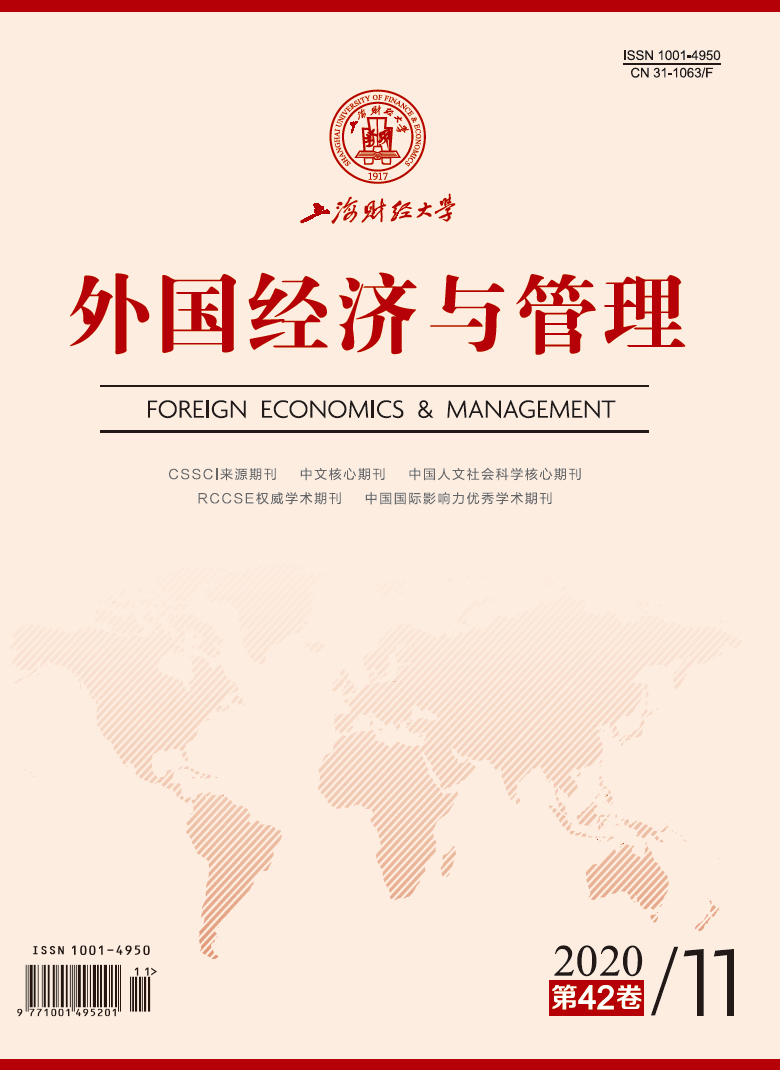作为非对称权力营销渠道中数量占优的一方,弱势方对强势方权力行使的合法性感知和行为反应是影响渠道绩效的重要因素。本文基于观察者视角的合法性理论,探究了权力合法性对弱势方行为反应及营销渠道绩效的影响机制,试图从合作(服从)与非合作(机会主义行为)两个角度全面描述弱势方行为。通过对283家样本企业的观察,本研究证明了权力合法性对弱势方行为反应及营销渠道绩效的影响机制,同时观察到了权力合法性对弱势方服从和机会主义行为的不对称影响关系,并证实了“阳奉阴违”(高服从和高机会主义行为)现象的存在性及对渠道绩效的影响。
阳奉阴违? 非对称权力渠道中的弱势方行为研究——基于权力合法性的视角
摘要
参考文献
1 李新建, 黄敏学, 李小玲. 营销渠道如何“无为而治”: 渠道政策的制度化机制研究[J]. 营销科学学报,2012, (4): 1-17.
2 Blau P M. Exchange and power in social life[M]. New Brunswick: Transaction Books, 1986.
3 Blois K. The legitimacy of power in business-to-business relationships[J]. Marketing Theory,2010, 10(2): 161-172. DOI:10.1177/1470593110366676
4 Brehm J W. A theory of psychological reactance[M]. New York: Academic Press, 1966.
5 Brill J E. Beyond managerial opportunism: Supplier power and managerial compliance in a franchised marketing channel[J]. Journal of Business Research,1994, 30(3): 211-223. DOI:10.1016/0148-2963(94)90052-3
6 Bucklin L P. A theory of channel control[J]. Journal of Marketing,1973, 37(1): 39-47. DOI:10.1177/002224297303700106
7 Das T K, Teng B S. Between trust and control: Developing confidence in partner cooperation in alliances[J]. Academy of Management Review,1998, 23(3): 491-512. DOI:10.5465/amr.1998.926623
8 Davies M A P, Lassar W, Manolis C, et al. A model of trust and compliance in franchise relationships[J]. Journal of Business Venturing,2011, 26(3): 321-340. DOI:10.1016/j.jbusvent.2009.09.005
9 Díez-Martín F, Prado-Roman C, Blanco-González A. Beyond legitimacy: Legitimacy types and organizational success[J]. Management Decision,2013, 51(10): 1954-1969. DOI:10.1108/MD-08-2012-0561
10 Emerson R M. Power-dependence relations[J]. American Sociological Review,1962, 27(1): 31-41. DOI:10.2307/2089716
11 Etgar M. Effects of administrative control on efficiency of vertical marketing systems[J]. Journal of Marketing Research,1976, 13(1): 12-24. DOI:10.1177/002224377601300103
12 Frazier G L, Rody R C. The use of influence strategies in interfirm relationships in industrial product channels[J]. Journal of Marketing,1991, 55(1): 52-69. DOI:10.1177/002224299105500105
14 Grewal R, Dharwadkar R. The role of the institutional environment in marketing channels[J]. Journal of Marketing,2002, 66(3): 82-97. DOI:10.1509/jmkg.66.3.82.18504
15 Gulati R, Sytch M. Dependence asymmetry and joint dependence in interorganizational relationships: Effects of embeddedness on a manufacturer’s performance in procurement relationships[J]. Administrative Science Quarterly,2007, 52(1): 32-69. DOI:10.2189/asqu.52.1.32
16 Heide J B, John G. The role of dependence balancing in safeguarding transaction-specific assets in conventional channels[J]. Journal of Marketing,1988, 52(1): 20-35. DOI:10.1177/002224298805200103
17 Hewett K, Bearden W O. Dependence, trust, and relational behavior on the part of foreign subsidiary marketing operations: Implications for managing global marketing operations[J]. Journal of Marketing,2001, 65(4): 51-66. DOI:10.1509/jmkg.65.4.51.18380
18 Hingley M K. Power to all our friends? Living with imbalance in supplier-retailer relationships[J]. Industrial Marketing Management,2005, 34(8): 848-858. DOI:10.1016/j.indmarman.2005.03.008
19 Hunt K A, Mentzer J T, Danes J E. The effect of power sources on compliance in a channel of distribution: A causal model[J]. Journal of Business Research,1987, 15(5): 377-395. DOI:10.1016/0148-2963(87)90008-7
20 John G. An empirical investigation of some antecedents of opportunism in a marketing channel[J]. Journal of Marketing Research,1984, 21(3): 278-289. DOI:10.1177/002224378402100305
21 Joshi A W, Stump R L. Determinants of commitment and opportunism: Integrating and extending insights from transaction cost analysis and relational exchange theory[J]. Canadian Journal of Administrative Sciences,1999, 16(4): 334-352. DOI:10.1111/j.1936-4490.1999.tb00693.x
22 Kashyap V, Antia K D, Frazier G L. Contracts, extracontractual incentives, and ex post behavior in franchise channel relationships[J]. Journal of Marketing Research,2012, 49(2): 260-276. DOI:10.1509/jmr.09.0337
23 Kasulis J J, Spekman R E. A framework for the use of power[J]. European Journal of Marketing,1980, 14(4): 180-191. DOI:10.1108/EUM0000000004899
24 Kibler E, Kautonen T. The moral legitimacy of entrepreneurs: An analysis of early-stage entrepreneurship across 26 countries[J]. International Small Business Journal,2016, 34(1): 34-50. DOI:10.1177/0266242614541844
25 Kramer R M. Trust and distrust in organizations: Emerging perspectives, enduring questions[J]. Annual Review of Psychology,1999, 50(1): 569-598. DOI:10.1146/annurev.psych.50.1.569
26 Kumar N, Stern L W, Achrol R S. Assessing reseller performance from the perspective of the supplier[J]. Journal of Marketing Research,1992, 29(2): 238-253. DOI:10.1177/002224379202900208
28 Marion G. Research note: Marketing ideology and criticism: Legitimacy and legitimization[J]. Marketing Theory,2006, 6(2): 245-262. DOI:10.1177/1470593106063985
29 Mohr J J, Fisher R J, Nevin J R. Collaborative communication in interfirm relationships: Moderating effects of integration and control[J]. Journal of Marketing,1996, 60(3): 103-115. DOI:10.1177/002224299606000307
30 Morgan R M, Hunt S D. The commitment-trust theory of relationship marketing[J]. Journal of Marketing,1994, 58(3): 20-38. DOI:10.1177/002224299405800302
31 Morrison E W, Robinson S L. When employees feel betrayed: A model of how psychological contract violation develops[J]. Academy of Management Review,1997, 22(1): 226-256. DOI:10.5465/amr.1997.9707180265
32 Mulder M. The daily power game[M]. Boston: Springer, 1977.
33 Palmatier R W, Dant R P, Grewal D. A comparative longitudinal analysis of theoretical perspectives of interorganizational relationship performance[J]. Journal of Marketing,2007, 71(4): 172-194. DOI:10.1509/jmkg.71.4.172
34 Payan J M, McFarland R G. Decomposing influence strategies: Argument structure and dependence as determinants of the effectiveness of influence strategies in gaining channel member compliance[J]. Journal of Marketing,2005, 69(3): 66-79. DOI:10.1509/jmkg.69.3.66.66368
35 Poppo L, Zenger T. Do formal contracts and relational governance function as substitutes or complements[J]. Strategic Management Journal,2002, 23(8): 707-725. DOI:10.1002/smj.249
36 Rokkan A I, Heide J B, Wathne K H. Specific investments in marketing relationships: Expropriation and bonding effects[J]. Journal of Marketing Research,2003, 40(2): 210-224. DOI:10.1509/jmkr.40.2.210.19223
37 Skarmeas D. The role of functional conflict in international buyer-seller relationships: Implications for industrial exporters[J]. Industrial Marketing Management,2006, 35(5): 567-575. DOI:10.1016/j.indmarman.2005.06.013
40 Suchman M C. Managing legitimacy: Strategic and institutional approaches[J]. Academy of Management Review,1995, 20(3): 571-610. DOI:10.5465/amr.1995.9508080331
41 Thomas T E. Are business students buying it? A theoretical framework for measuring attitudes toward the legitimacy of environmental sustainability[J]. Business Strategy and the Environment,2005, 14(3): 186-197. DOI:10.1002/bse.446
42 Tilling M V. Some thoughts on legitimacy theory in social and environmental accounting[J]. Social and Environmental Accountability Journal,2004, 24(2): 3-7. DOI:10.1080/0969160X.2004.9651716
43 Tost L P. An integrative model of legitimacy judgments[J]. Academy of Management Review,2011, 36(4): 686-710. DOI:10.5465/amr.2011.65554690
44 Tyler T R. The psychology of legitimacy: A relational perspective on voluntary deference to authorities[J]. Personality and Social Psychology Review,1997, 1(4): 323-345. DOI:10.1207/s15327957pspr0104_4
46 Williamson O. The economic institutions of capitalism: Firms, markets, relational contracting[M]. New York: The Free Press, 1985.
引用本文
张慧, 张剑渝, 王立磊. 阳奉阴违?非对称权力渠道中的弱势方行为研究——基于权力合法性的视角[J]. 外国经济与管理, 2020, 42(11): 94-108.
导出参考文献,格式为:






 10145
10145  6839
6839

